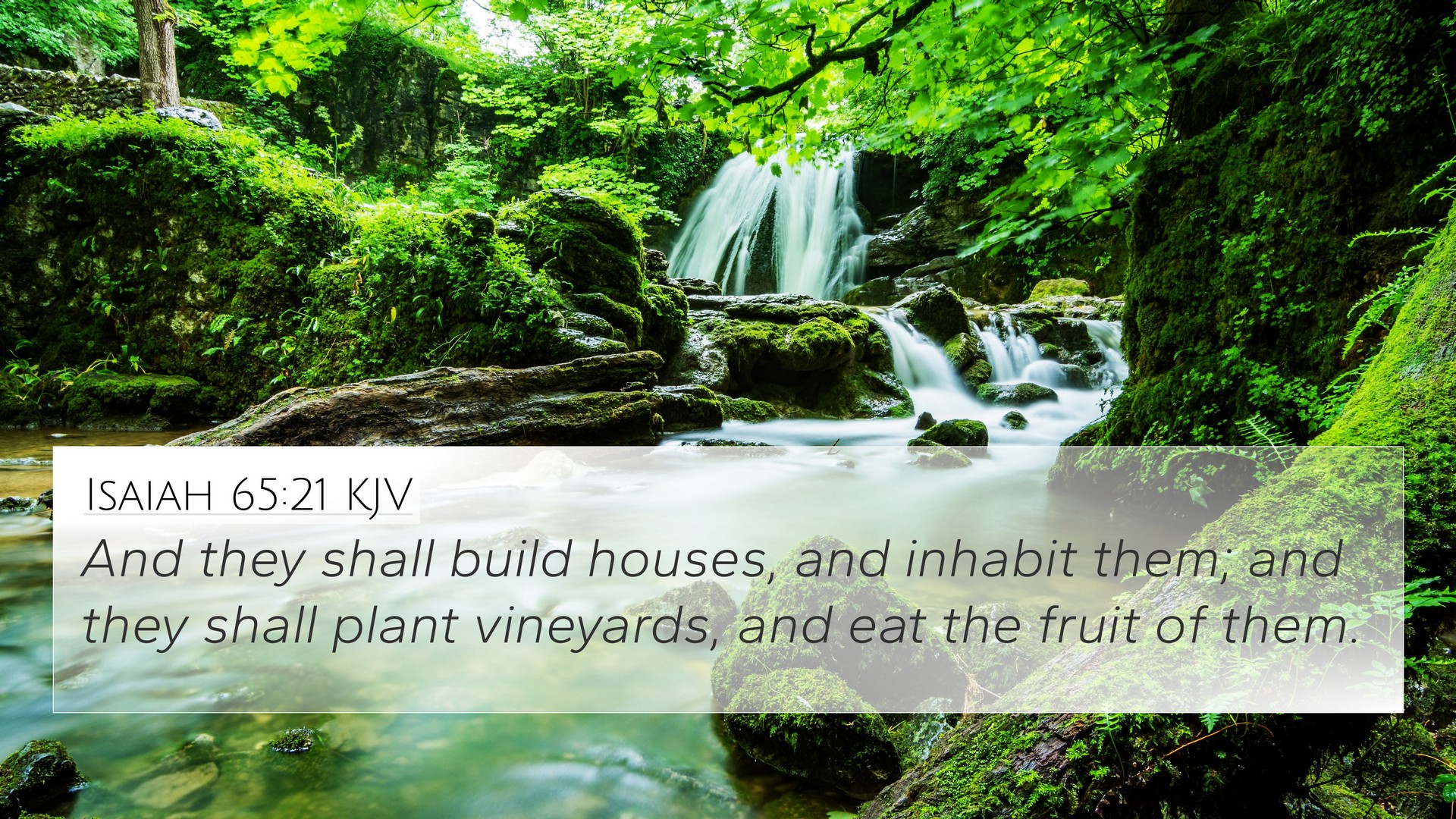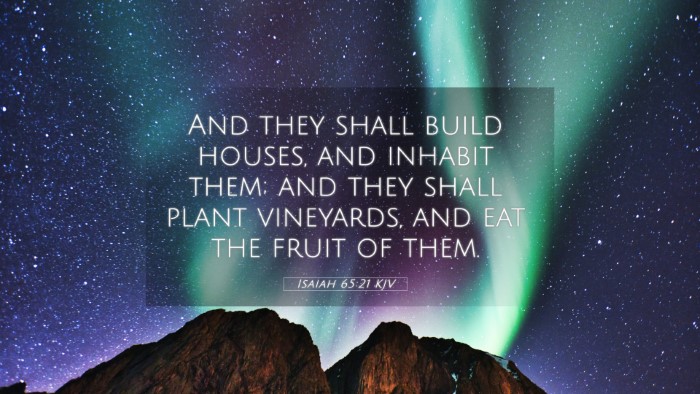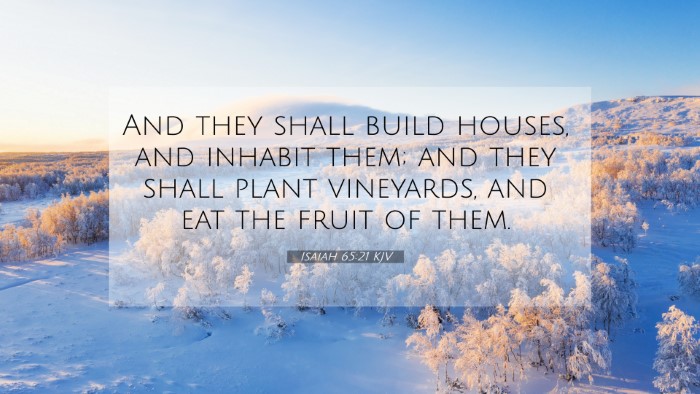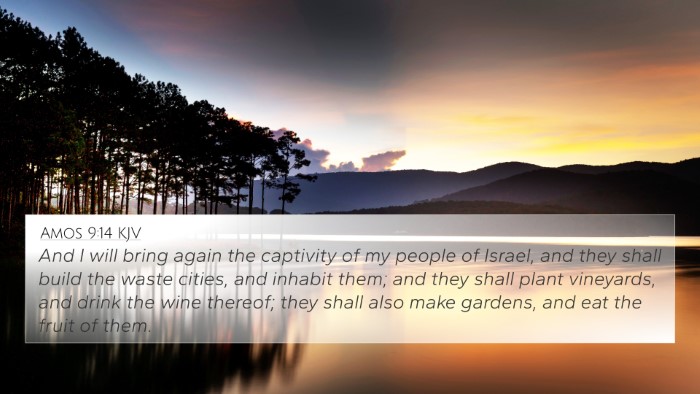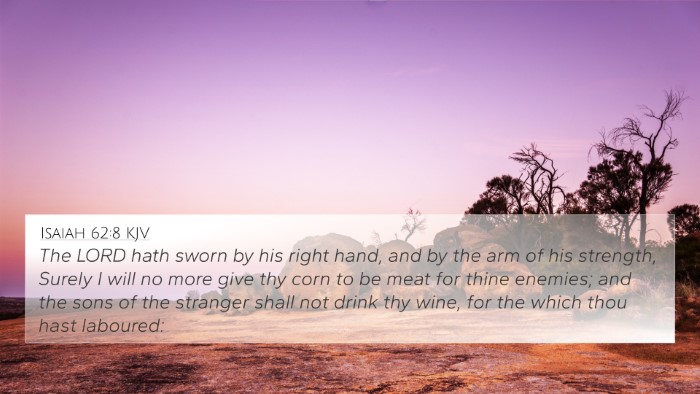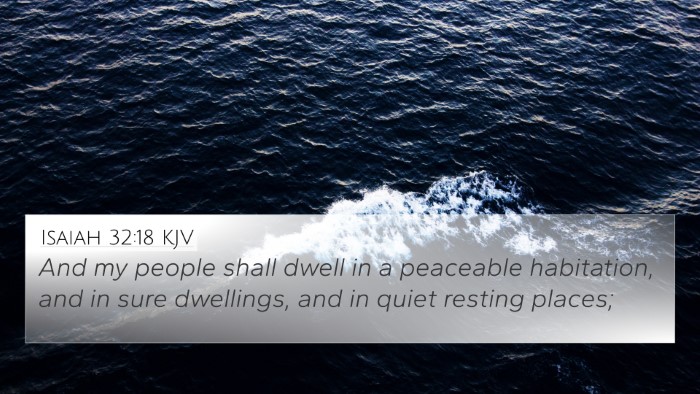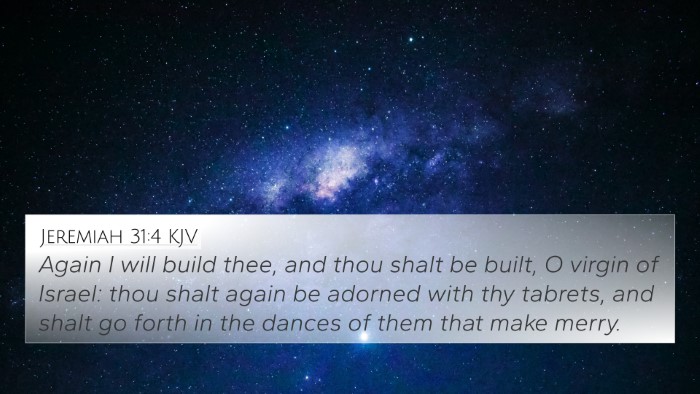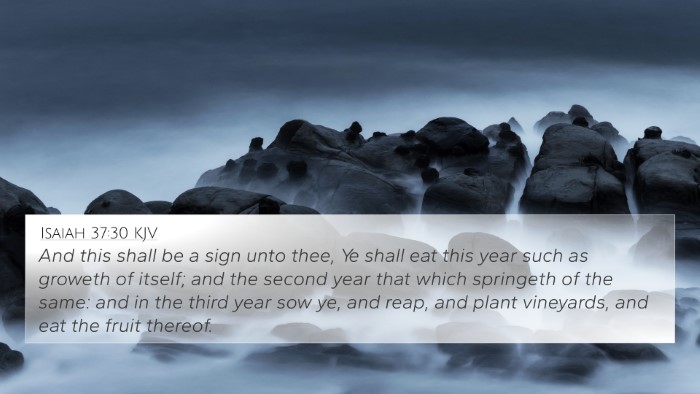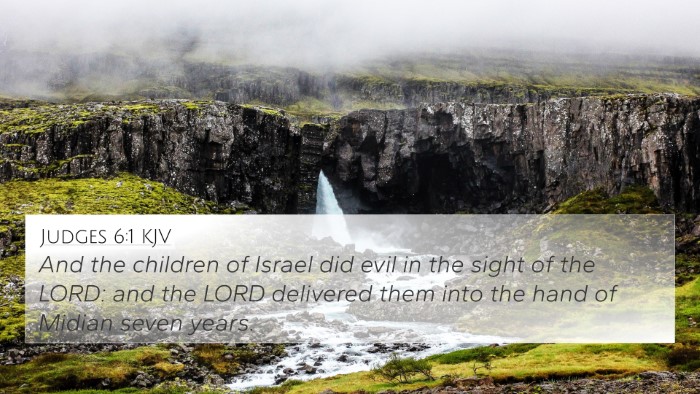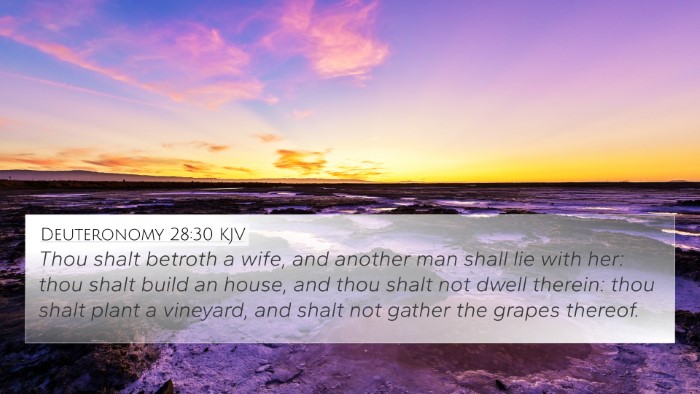Understanding Isaiah 65:21
Verse: "And they shall build houses, and inhabit them; and they shall plant vineyards, and eat the fruit of them."
Context and Overview
Isaiah 65:21 presents a vision of restoration and fulfillment in God's promised kingdom. This verse reflects God's commitment to bless His people with prosperity and security in a future time known as the "new heavens and new earth."
Commentary Insights
Matthew Henry's Commentary
Matthew Henry points out that this verse emphasizes the joyful activities of building and planting—symbols of stability and long-lasting enjoyment. He interprets this as a figurative restoration where God's people will be engaged in fruitful labor, free from the fear of dispossession or destruction, unlike past experiences of exile and despair.
Albert Barnes' Notes
Albert Barnes provides a thorough analysis, noting that the ability to build houses and plant vineyards denotes the absence of oppression and fear. He emphasizes that this reflects the peace and security that will characterize the restored state for God’s people, contrasting sharply with their previous suffering. The act of inhabiting and harvesting shows a return to an ideal state of life that God intended for humanity.
Adam Clarke's Commentary
Adam Clarke expands on the metaphor of building and planting as indicative of God’s eternal covenant with His people. He suggests these actions signify the reinstatement of blessings and the experience of God's grace, where individuals can pursue their dreams and aspirations without hindrance. Clarke emphasizes that this verse is both a promise and a profound reassurance of God’s fidelity to His people’s future.
Thematic Bible Verse Connections
Isaiah 65:21 can be cross-referenced to various other biblical passages, underlining themes of restoration, security, and divine blessing:
- Isaiah 65:22 - The continuation of the theme of generational blessing and security.
- Jeremiah 29:5-7 - God’s encouragement to the exiles to build and plant, promoting peace and prosperity.
- Revelation 21:4 - The promise of wiping away all tears, paralleling the hope of a future without sorrow.
- Psalms 128:1-2 - Blessed are those who fear the Lord; they will eat the fruit of their labor.
- Micah 4:4 - Everyone will sit under their own vine and fig tree, a promise of peace.
- Luke 19:15-19 - The parable of the talents, highlighting the rewards of faithful labor.
- Galatians 6:9 - Encouragement to not grow weary in doing good, as harvesting blessings will come.
Exploring Cross-References
Understanding the connections between Bible verses is essential for a comprehensive interpretation of scriptural texts. Tools for Bible cross-referencing, such as Bible concordances and cross-reference guides, prove invaluable in linking scriptures and revealing thematic continuity throughout the Bible.
For instance, identifying connections between the Old and New Testaments allows for a deeper understanding of how promises made are fulfilled in Christ, as well as highlighting parallels in God’s interactions with His people across different eras.
Practical Applications
Believers can find encouragement through Isaiah 65:21, acknowledging that no matter the circumstances, God is faithful to provide and restore. This reassurance applies to various areas of life, from personal struggles to communal challenges.
To study the themes of restoration more closely, consider utilizing a cross-referenced Bible study method:
- Identify the main theme of restoration.
- Use a Bible concordance to find related verses.
- Compare these passages to draw deeper insights into God's character and His promises.
Conclusion
Isaiah 65:21 encapsulates a promise of divine fulfillment and the joy of reaping the rewards of faithful labor. As individuals explore this verse, their understanding is enriched by connecting it with other scriptures, fostering a deeper appreciation for the synchronicity of God’s Word through various biblical texts.
This verse highlights the importance of engaging with the breadth of the Bible through comparative analysis and inter-Biblical dialogue, thus providing believers with a holistic view of God's redemptive plan.
